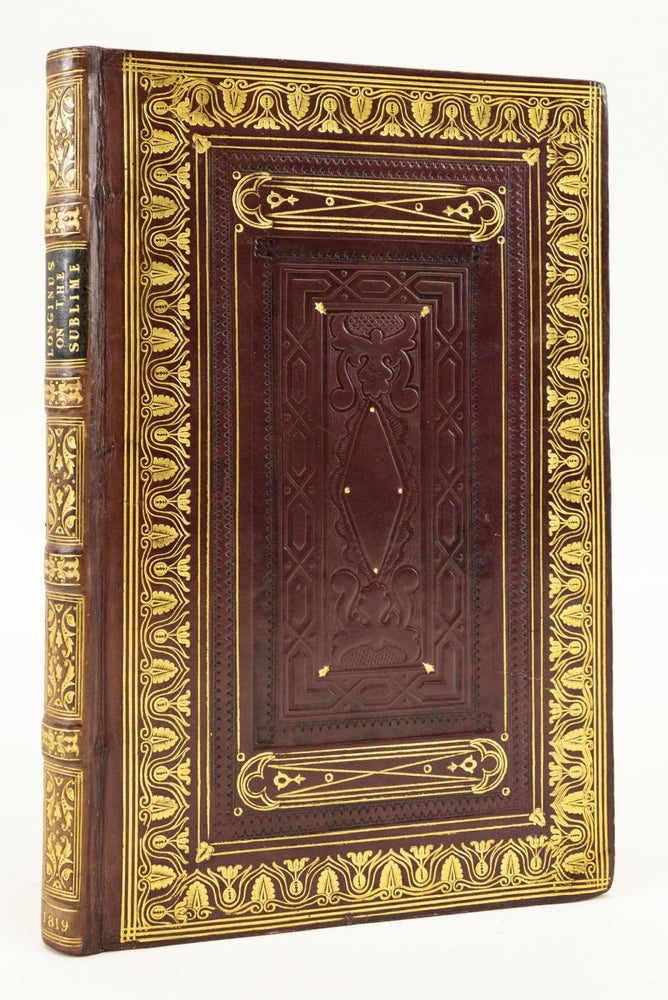
Browse Similar Items
DIONYSIUS LONGINUS ON THE SUBLIME.
(London: Printed for F. C. and J. Rivington (and others), 1819). 216 x 136 mm. (8 1/2 x 5 3/8"). viii, [9]-223, [1] pp.Translated from the Greek by William Smith.
Attractive contemporary oxblood calf decorated in gilt and blind, covers with a wide gilt palmette frame enclosing an intricately blind-stamped panel with additional gilt decoration, raised bands, spine heavily gilt in compartments, black morocco label, gilt turn-ins, marbled endpapers and edges. Front free endpaper inscribed in ink: "Miss Filliter obtained this Book, as a Prize by her uniform attention to the Study of Latin, during the Half-year. / June, 1828." ◆Lower corners lightly bumped, a little rubbing at extremities, flyleaves faintly browned, occasional trivial internal imperfections, but still quite a fine copy, the contents extremely clean and unusually bright, and in a well-preserved binding with a great deal of aesthetic appeal.
In a handsomely decorated binding, this is an excellent translation of one of the most important treatises of literary criticism to come out of the ancient world. First published in 1737, our translation established the reputation of William Smith (1711-87) as a "talented classical scholar." (DNB) A later William Smith (the lexicographer) said of "On the Sublime," "there is scarcely any work in the range of ancient literature which, independent of its excellence of style, contains so many exquisite remarks upon oratory, poetry, and good taste in general." Although generally attributed to the third century Greek philosopher and critic Longinus, the work probably preceded him. After unsuccessful attempts to determine if Dionysius of Halicarnassus, Cassius Longinus, Plutarch, or another was the author, scholars arrived at the solution of calling the creator "Pseudo-Longinus." Our pretty, though unsigned, binding combines gilt and blind decoration in a particularly pleasant way. Volumes of classics in ornamental bindings were popular school prizes in the 19th century, but ours is distinguished by being presented to a young lady who excelled in Latin at a time when most women received little formal education, and 40 percent of the women in England were illiterate. The condition here suggests Miss Filliter (and her successors) treasured and cared for the present volume. (ST15731b)
Price: $950.00
